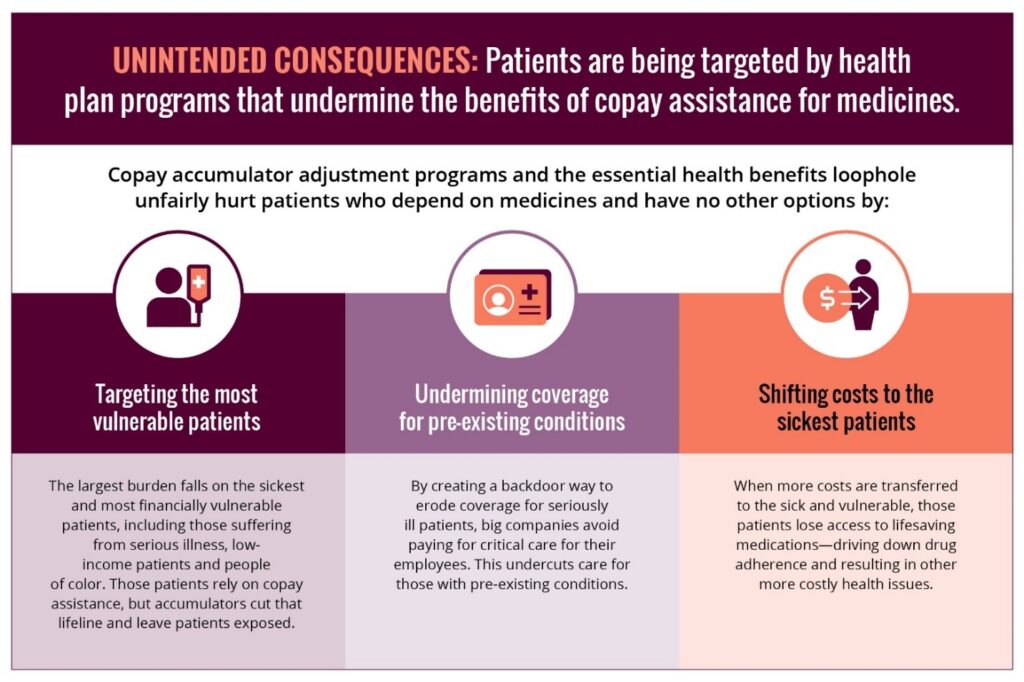Commercial payers and Medicare Part D plans both restrict patient assistance programs. Drug companies currently are not allowed to offer direct support to Medicare Part D patients because of anti-kickback laws. The unintended consequence is that patients may be forced to discontinue effective disease-modifying therapy when they become Medicare Part D beneficiaries.

Keep Treatment Affordable & Accessible
The ACR believes patients should not be denied effective therapies, such as biologics, solely because of their cost. The ACR supports legislation to allow beneficiaries to accept financial copay assistance for specialty cost tier drugs from pharmaceutical companies for Part B and Part D drugs, and it opposes insurance restrictions that prevent application of funds from assistance programs toward patients’ deductibles and out-of-pocket maximum payments.
Fourteen states (i.e., Washington, Arizona, Nebraska, Oklahoma, Louisiana, Arkansas, Illinois, Kentucky, Tennessee, West Virginia, Virginia, North Carolina, Georgia and Connecticut) and Puerto Rico have passed bills to ban copay accumulator programs. These laws are aimed at ensuring patients can remain on their medications and at preventing insurers and pharmacy benefit managers from unfairly taking payment from both the copay assistance source and the patient for the same cost-sharing requirement.
Nationally, the bipartisan Help Ensure Lower Patient (HELP) Copays Act (H.R. 5801) eliminates barriers to treatment for patients by ensuring that they can apply all copays toward the necessary medications prescribed by their doctors and ensuring all copays count. It clarifies the Affordable Care Act definition of cost-sharing to ensure payments made “by or on behalf of” patients count toward their deductible and/or out-of-pocket maximum.
The HELP Copays Act was introduced in November 2021, sponsored by Reps. Donald McEachin (D-Va.), Rodney Davis (R-Ill.), Bonnie Watson Coleman (D-N.J.), Bobby Rush (D-Ga.), Brian Fitzpatrick (R-Pa.), Yvette Clarke (D-N.Y.), Marc Veasey (D-Texas) and Buddy Carter (R-Ga.).
In May, Advocacy Leadership Conference participants asked members of the House to support H.R. 5801 and senators to introduce a companion bill. This legislation would bring relief to patients with rheumatic diseases by ensuring that all payments—whether they come directly out of a patient’s pocket or with the help of copay assistance—count toward their out-of-pocket costs.
Although things can move slowly on Capitol Hill, advocacy makes a difference. The ACR Government Affairs Committee is an important resource for members and includes both ACR and ARP volunteer members.
We highly recommend getting involved at the national and/or state level to let your representatives know your concerns. With the ACR/ARP, you have a group of dedicated volunteers and staff who can answer your questions and provide resources to help you get started.

